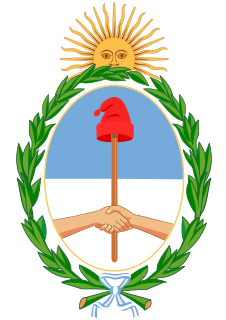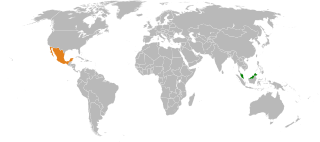 | |
Chile | Malaysia |
|---|---|
Chile–Malaysia relations refers to foreign relations between Malaysia and Chile. Chile has an embassy in Kuala Lumpur, [1] and Malaysia has an embassy in Santiago. [2] Both countries are members of APEC.
 | |
Chile | Malaysia |
|---|---|
Chile–Malaysia relations refers to foreign relations between Malaysia and Chile. Chile has an embassy in Kuala Lumpur, [1] and Malaysia has an embassy in Santiago. [2] Both countries are members of APEC.
| | This section needs expansion. You can help by adding to it. (February 2020) |
Relations between the two countries was established on 22 May 1979, [3] with the embassy of Chile been opened in 1989. [4]
Relations between both countries is mainly based on trade, with Malaysia become Chile's main trading partner in Southeast Asia with the total trade in 1990 reaching $800 million. [5] In the same year, a special scheme to help foreign businessmen to visit Malaysia are being proposed by Malaysian Deputy Prime Minister Ghafar Baba following his visit to Chile. [6] Both Chile and Malaysia agreed to set-up a joint committee to co-operated in the information and broadcasting field in 1994. [7] Economic relations between the two countries are based on the South-South co-operation and pacts on bilateral trade was signed in 1995. [8] In 2009, the total trade between Chile and Malaysia is $336 million with the total Malaysian export to Chile were $16.8 million while the import with $148.7 million. [9] Chilean cuisine are started to be promoted to Malaysia in the same year. [10] A memorandum of understanding (MoU) to improve air links was signed in 2010, [11] with the tariff on trade agreement was scrapped in the same year. [12] The two countries free trade agreement taking effect from 2011, [13] as joint study group has been formed since 2006 for the treaty. [14] Chile has developed a joint ventures in shipbuilding through ASMAR with a tanker and two tugboats were built in Kuching, Malaysia. [4] While in the Malaysian side, a Malaysian car model of Proton has now been exported to Chile. [4]
On 19 April 2009, Yang di-Pertuan Agong, Sultan Mizan Zainal Abidin and Raja Permaisuri Agong, Tuanku Nur Zahirah made a first official visit to Chile and met with the President of Chile, Michelle Bachelet. [15]

Since its return to democracy in 1990, Chile has been an active participant in the regional and international arena. Chile assumed a two-year non-permanent position on the UN Security Council in January 2003 and was re-elected to the council in October 2013. It is also an active member of the UN family of agencies, serving as a member of the Commission on Human Rights and participating in UN peacekeeping activities. Chile hosted the second Summit of the Americas in 1998, was the chair of the Rio Group in 2001, hosted the Defense Ministerial of the Americas in 2002, and the APEC summit and related meetings in 2004. In 2005 it hosted the Community of Democracies ministerial conference. An associate member of Mercosur and a full member of APEC. The OECD agreed to invite Chile to be among four countries to open discussions in becoming an official member. Chile has been an important actor on international economic issues and hemispheric free trade. The Chilean Government has diplomatic relations with most countries.

Colombia seeks diplomatic and commercial relations with all countries, regardless of their ideologies or political or economic systems. For this reason, the Colombian economy is quite open, relying on international trade and following guidelines given by international law.

Malaysia is an active member of various international organisations, including the Commonwealth of Nations, the United Nations, the Organisation of Islamic Cooperation, and the Non-Aligned Movement. It has also in recent times been an active proponent of regional co-operation.

This article deals with the diplomatic affairs, foreign policy and international relations of Argentina. At the political level, these matters are handled by the Ministry of Foreign Relations, also known as the Cancillería, which answers to the President. The Minister of Foreign Relations, since December 2019, is Chancellor Felipe Sola.

Bolivia traditionally has maintained normal diplomatic relations with all hemispheric states except Chile. Foreign relations are handled by the Ministry of Foreign Affairs, headed by the Chancellor of Bolivia, Fernando Huanacuni Mamani, the successor of David Choquehuanca Céspedes.

Malaysia–Russia relations refers to bilateral foreign relations between the two countries, Malaysia and Russia. Russia has an embassy in Kuala Lumpur, and Malaysia has an embassy in Moscow.

Malaysia–Sweden relations refers to foreign relations between Malaysia and Sweden. Sweden has an embassy in Kuala Lumpur, and Malaysia has an embassy in Stockholm. As of 2009, 90 Swedish companies are present in Malaysia and about 450 Swedish citizens live in Malaysia. In 2011, 44,138 Swedish nationals visited Malaysia.

Argentina–Malaysia relations refers to bilateral foreign relations between the two countries, Argentina and Malaysia. Argentina has an embassy in Kuala Lumpur, and Malaysia has an embassy in Buenos Aires.

Malaysia–Peru relations refers to bilateral foreign relations between Malaysia and Peru. Malaysia has an embassy in Lima, while Peru has an embassy in Kuala Lumpur. The countries desire to improve their relations in tourism, trade and investment, agriculture and forestry, health, science and technology, energy, education, rural development, poverty alleviation, gastronomy, and art and culture.

Colombia–Malaysia relations refers to bilateral foreign relations between Colombia and Malaysia. Colombia maintains an embassy in Kuala Lumpur, while the embassy of Malaysia in Lima, Peru is accredited to Colombia.

Laos–Malaysia relations are foreign relations between Laos and Malaysia. Both countries are the members of ASEAN.

Ecuador–Malaysia relations are foreign relations between Ecuador and Malaysia. Ecuador has an embassy in Kuala Lumpur, while Malaysia has an honorary consul in Quito that is supervised by Malaysian embassy in Santiago. Both countries are also members of the Non-Aligned Movement.

Malaysia–Mexico relations refers to bilateral relations between Malaysia and Mexico. Both nations are mutual members of the Asia-Pacific Economic Cooperation.

Malaysia–Spain relations refers to bilateral foreign relations between Malaysia and Spain. Malaysia has an embassy in Madrid, and Spain has an embassy in Kuala Lumpur.

Malaysia–Tajikistan relations are foreign relations between Malaysia and Tajikistan. Malaysian embassy in Tashkent, Uzbekistan is also accredited to Tajikistan, while Tajikistan has an embassy in Ampang, Selangor. Both countries have been enjoying warm diplomatic relations and are willing to make constructive efforts towards progress.

Malaysia–Uruguay relations are foreign relations between Malaysia and Uruguay. Malaysia has an embassy in Buenos Aires, Argentina, while Uruguay has an embassy in Kuala Lumpur. Both countries are full members of the Cairns Group and of the Group of 77.

Kazakhstan–Mexico relations refers to the bilateral relations between Kazakhstan and Mexico. Both nations are members of the United Nations and the World Trade Organization.

Chile–Norway relations are foreign relations between the Republic of Chile and the Kingdom of Norway. Both nations are members of the OECD and the United Nations.

El Salvador–India relations refers to the international relations that exist between El Salvador and India. El Salvador maintains an embassy in New Delhi and an honorary consulate in Bangalore. The Embassy of India in Guatemala is jointly accredited to El Salvador. India also maintains an honorary consulate in San Salvador.

Colombia–New Zealand relations refers to the diplomatic relations between the Republic of Colombia and New Zealand. Both nations are members of the United Nations.